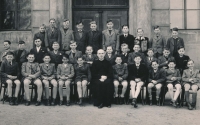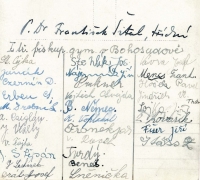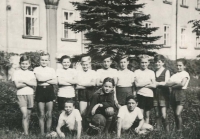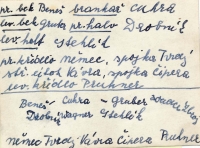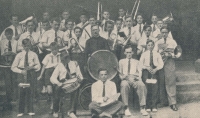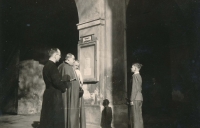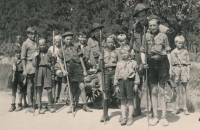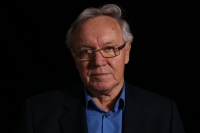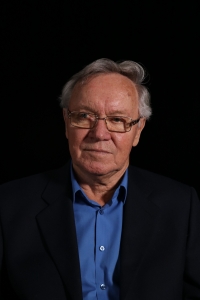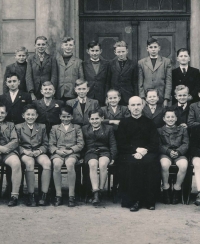And then the lights turned on.

Stáhnout obrázek
Václav Wagner was born on the 3rd of February in 1938 in Prague. His parents were practicing Catholic and in 1947, they sent him to a Jesuits’ boarding school in Bohosudov. After a short break caused by the Communist reform of school system, classes continued until April 1950 when the Communist government started the first phase of the Operation K [K stands for kláštery = convents] – there were raids on convents and the brothers were interned. During the night of the 13th - 14th April, the police and People’s Militia stormed the dormitory where the Bohosudov pupils were sleeping. Vaclav recalls rough handling by the militia, dogs barking and the night journey by prison buses. After he returned to Prague, he apprenticed as woodworker. Then, as a “working class cadre”, he was allowed to study at a technical secondary school. In the 1960’s, he worked as a clerk in the ČKD factory; there he witnessed the Warsav PactArmies occupation of Czechoslovakia. ON the 22th of August 1968, he served as a guard during the extraordinary meeting of the Communist party, the so-called Vysočany Meeting, which condemned the occupation. He never joined the Communist Party, during the normalisation, he worked in the Federal Office for Prices. After the revolution, he helped with dismantling the office and then he worked as the head of the department of price policy at the Ministry of Finances.
